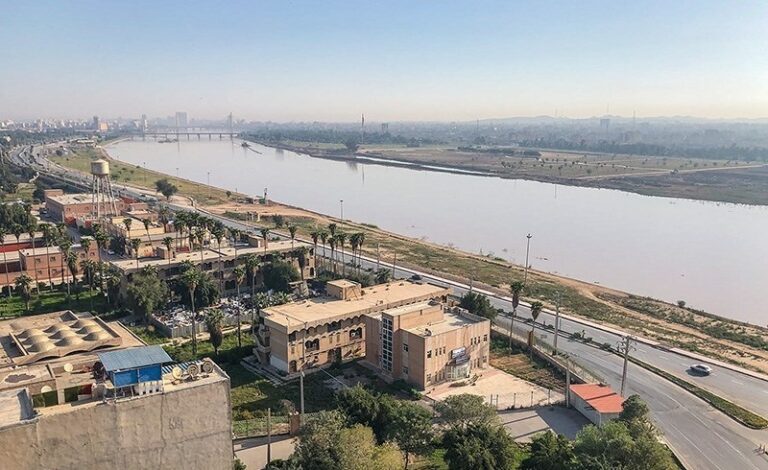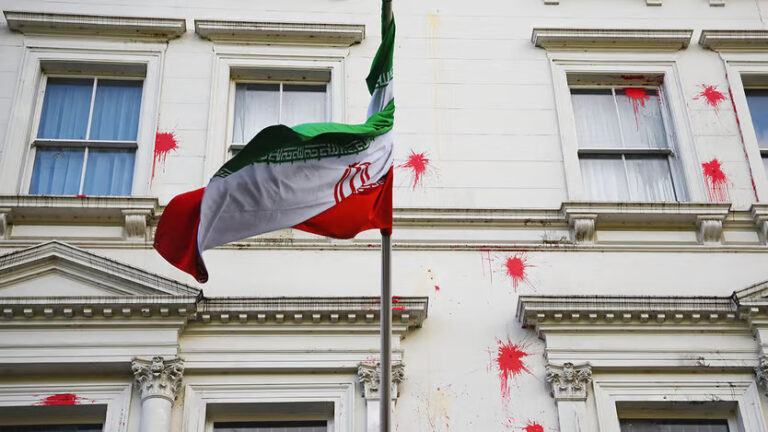REUTERS / BAGHDAD
Nuclear talks between world powers and Tehran over Iran’s atomic program resumed in Baghdad on Friday, a day 
after Tehran accused the West of creating “a difficult atmosphere” hindering the talks on its atomic energy program, signaling a snag in diplomacy to ease a stand-off over fears of a covert Iranian effort to develop nuclear bombs. Negotiators from the U.S. and five other world powers sat down Wednesday with a team of Iranian diplomats to try to hammer out specific goals in the years-long impasse over Tehran’s nuclear program.
Iran is demanding that the West outline timetables and steps ahead in gradually addressing international concerns over the Islamic Republic’s nuclear ambitions.
The U.S. has been vague about its immediate goals.
Few believe the discussions in Baghdad will yield breakthroughs in the showdowns over Iran’s nuclear program.
Iran had served notice that it wanted immediate relief from economic sanctions as part of any deal to stop higher-grade uranium enrichment, a pathway to nuclear arms, whereas Western powers insisted Tehran must first shut it down.
Iranian media close to Tehran’s delegation said it was insisting on a “principle of “reciprocity” of concessions they said was promised by the powers in preparatory talks in Istanbul last month but was not guiding the Baghdad negotiations.
“Iranian diplomats close to the negotiations believe that the (powers’) approach in Istanbul was more positive and encouraging than what is being seen in Baghdad,” the Iranian student agency ISNA reported.
“It remains to be seen whether Iran is prepared to continue negotiations in the ambiguous conditions that the West is following in the new round of talks, or not,” ISNA said.
Washington voiced cautious hope on Wednesday that Iran was finally engaging the powers on detailed, transparent ways of proving its nuclear work, after years of secrecy and evasions of U.N. investigations, would be for peaceful purposes only.
European Union foreign policy chief Catherine Ashton, heading the powers’ delegation in Baghdad, met her Iranian counterpart on Thursday before the two sides resumed a full plenary session, a Western diplomat said.
Iranian objections
But an Iranian delegate poured cold water on suggestions from Western diplomats that the two sides appeared to be finding common ground on proposals for an outline deal.
“What we heard in Istanbul was more interesting,” he said, referring to exploratory talks that ended a 15-month diplomatic deep freeze during which the West escalated sanctions to target Iran’s oil exports.
“We believe the reason (the powers) are not able to reach a result is America,” the official said, asking not to be named. “(They) came to Baghdad without a clear mandate so we think the atmosphere is difficult.”
A senior U.S. official said earlier the six powers had put specific gestures to lessen sanctions pressure on the table as part of a step-by-step confidence-building process.
A Western diplomat said that one element of the offer was an easing of restrictions to exports of aircraft parts to Iran – a relatively modest step unlikely to unblock the broader standoff.
After the Iranian criticism, another diplomat at the talks said none of the six powers – the United States, Russia, China, France, Britain and Germany – were “‘rolling back’ on anything.
“By coming to Baghdad and putting on the table a forward-looking package, we are being pro-active, engaging and building on Istanbul. Any negotiation on an issue like this is never going to be straightforward, but it’s far too early to give a clear read-out of how things are progressing.”
Increasing tensions have thrust global oil prices upward as the West has extended sanctions to block Iran’s crude exports and the spectre of Middle East conflict has risen from possible Israeli strikes on Iran’s fortified nuclear installations.
Under the nervous scrutiny of oil markets and Iran’s arch-enemy Israel – believed to be the only Middle East country with nuclear weapons, the two sides met for a full day on Wednesday, negotiating deep into the night.
Iranian chief negotiator Saeed Jalili presented a five-point package of proposals covering a wide range of nuclear and non-nuclear issues, according to Iranian media. But a European diplomat said: “We are not quite sure what these five points are. We are trying to find out. There are no details.”
The U.S. official said the dialogue revealed a “fair amount of disagreement, but we still have to come to closure about what are the next appropriate steps.”
Iran, the world’s No. 5 oil exporter, says it is enriching uranium only for electricity to serve needs of a burgeoning population, and for a medical research reactor.
The overall goal of the six countries jointly negotiating with Tehran is an Iranian agreement to limit uranium enrichment in a transparent, verifiable way to ensure it cannot be diverted to bombmaking. The Islamic Republic’s priority is to secure a swift end to sanctions isolating the country.
The powers’ main proposal was for Iran to halt its uranium enrichment to the higher fissile concentration of 20 percent.
That is the Iranian nuclear advance most worrying to the West since it largely overcomes the technical obstacles to reaching 90 percent, or bomb-grade, enrichment. Tehran says the 20 percent material will serve as fuel for a research reactor.
It has hinted at flexibility on higher-grade enrichment, although analysts say it would be unlikely to compromise much while sanctions remain in place.
In the absence of diplomatic compromise, Iran appeared to be putting “more facts on the ground” to boost its position.
A U.N. nuclear agency report due in the next few days is expected to show that Iran has installed more uranium enrichment centrifuges at an underground site, potentially boosting output capacity of nuclear work global powers want it to stop.
The Islamic Republic has repeatedly ruled out suspending all enrichment as called for by several U.N. Security Council resolutions, saying nuclear energy is a matter of national sovereignty and pride in technological progress.











+ There are no comments
Add yours